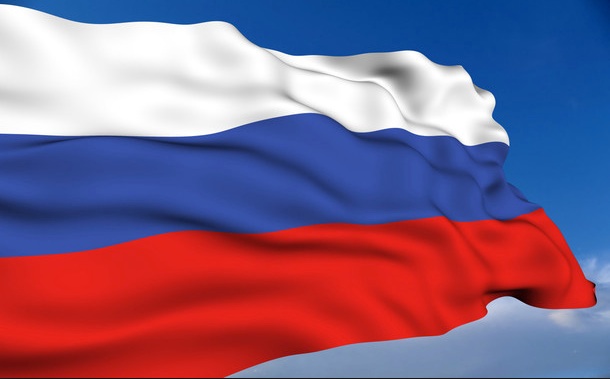*
29 July 2014
Over the weekend, British deputy prime minister Nick Clegg told the Sunday Times that Russia should be stripped of the 2018 World Cup. Clegg joins several senior German politicians in calling for the next World Cup to be moved as a sanction against Russia for its role in the continuing conflict in the Ukraine. The renewed calls for sanctions have been prompted by the shooting down of Malaysian Airlines 17 over eastern Ukraine, allegedly by Russian-supported Ukrainian separatists.
Does FIFA have a responsibility to engage in global geopolitics? Its history and actions say yes.
Yet FIFA’s first reaction to calls for stripping Russia of the World Cup prompted FIFA on July 25th to issue a “Statement on Russia 2018.” In it FIFA rejected calls to revisit the 2018 World Cup hosting decision: “History has shown so far that boycotting sport events or a policy of isolation or confrontation are not the most effective ways to solve problems.” FIFA continues: “We have seen that the FIFA World Cup can be a force for good and FIFA believes this will be the case for the 2018 FIFA World Cup in Russia.”
Yet, FIFA’s reading of history is not quite right. Decisions about football competitions based on political considerations, including international sanctions, have a rich history. Just two weeks ago the UEFA Emergency Committee decided that no Champions League or Europa Cup matches are to be played in Ukraine or Israel. These decisions were based on concerns about the ongoing conflicts. Another decision was made “in light of the current political situation,” with UEFA deciding that teams from Russia and Ukraine will not be allowed to face each other in the international competitions.
While the recent UEFA decisions might be characterized solely in terms of security, there is a far more direct precedent. In March 1991, the Yugoslavian team Red Star Belgrade defeated Olympique Marseille to win the European Cup, the event now known as the Champions League. Less than five months after reaching the pinnacle of European football, Yugoslavia was the subject of the first of a long series of United Nations Security Council resolutions imposing sanctions on the nation due to its escalating civil war. These sanctions included explicit mention of sport and they prompted football governance organizations to respond.
In early 1992 the UN Security Council passed a resolution (number 757) calling on all states to “take the necessary steps to prevent the participation in sporting events on their territory of persons or groups representing the Federal Republic of Yugoslavia.” Both FIFA, which oversees global football, and UEFA, which oversees European competitions under FIFA, followed up on the UN sanctions by prohibiting Yugoslavia from participating in the European championships or in qualifying for the World Cup. Of note, Yugoslavia’s replacement in the 1992 European Championships was Denmark, who subsequently went on to win the competition.
The UEFA sanctions also meant that Yugoslavian club teams could not participate in international competitions. This included the recent European champions Red Star Belgrade. The Sunday Times opined that “For the man in the street, Red Star’s disintegration has been more devastating than any other effect of UN sanctions” (quoted in Mills 2009). Before Yugoslavia ultimately disintegrated into independent nations it was allowed back into international football competition in December 1996, and both it and Croatia, formerly part of Yugoslavia, qualified for the 1998 World Cup.
The Yugoslavian case is not unique. As long ago as 1961 FIFA suspended the South African football association from participation over the issue of apartheid, following the actions of the African Football Confederation (CAF) three years earlier. In this case FIFA acted before the United Nations imposed sanctions. The issue of South Africa’s participation became a major point of contention within FIFA itself over more than a decade.
FIFA has also used football as a diplomatic carrot. In 1998 Joao Havelange, president of FIFA, announced that FIFA would organize a football match between Israel and Palestine. He exclaimed: “Where politics, diplomacy and the business world have failed, I believe that football can succeed” (quoted in Boniface 2002). Obviously not.
History shows that of course sports organizations respond to political context. FIFA (and its member confederations) have included geopolitical considerations in their decisions about participation and hosting of football competitions, including the World Cup. FIFA President, Sepp Blatter, likes to present himself as the equivalent of a head of state. And FIFA is quick to engage in geopolitics when deciding on where to host the World Cup. Sport does not exist in a vacuum, of course FIFA cannot ignore global geopolitics. FIFA has a responsibility to engage, even when the stakes involve more than its own narrow interests.
Thus it is unlikely that FIFA’s July 25th statement reaffirming its support for Russia 2018 will be the last word on this subject. In particular, if the United Nations or even the European Union decides to impose sanctions upon Russia, pressure will increase dramatically on FIFA to respond accordingly. The Yugoslavian experience sets a powerful recent precedent.
Russia is spending a reported $20 billion on preparing for the 2018 World Cup. However, the costs of stripping the nation of the World Cup would likely be much greater than these direct costs and go far beyond those which can be measured in dollars. Europe has faced international criticism for its divided views on imposing economic sanctions on Russia. But the reality is that Russia is in a position to inflict severe economic pain on Europe as well, due to its significant reliance on Russian gas.
Right now it appears that neither FIFA, UEFA nor the EU are prepared to take any steps to question Russia’s hosting of the 2018 World Cup. No doubt they are hoping for a resolution of the conflict in a manner the does not involve international sanctions. However, politicians have already started the sanctioning equivalent of rattling swords. Such calls to use the 2018 World Cup as a means of punishing Vladimir Putin and Russia will likely become louder the longer the Ukrainian conflict continues.
Ultimately, if the Ukrainian conflict escalates to the point where the United Nations begins to discuss sanctions, the Yugoslavian precedent means that it would likely be difficult to exclude sport as part of that discussion. Not only would such steps call into question the 2018 World Cup, but also the participation of Russian clubs in international competitions as well as effects on other international sports. With the rise of football in its visibility and significance around the world, so too has its value as a bargaining chip in international politics. Russia 2018 is far from settled.
.
Roger Pielke Jr. is a professor of environmental studies at the University of Colorado, where he also directs its Center for Science and technology Policy Research. He studies, teaches and writes about science, innovation, politics and sports. He has written for The New York Times, The Guardian, FiveThirtyEight, and The Wall Street Journal among many other places. He is thrilled to join Sportingintelligence as a regular contributor. Follow Roger on Twitter: @RogerPielkeJR and on his blog
.










